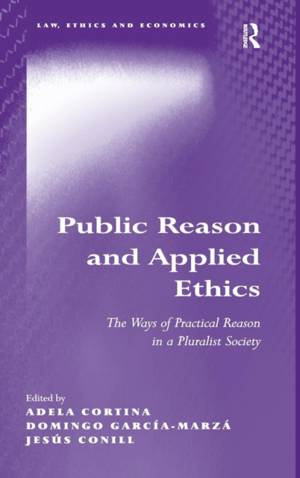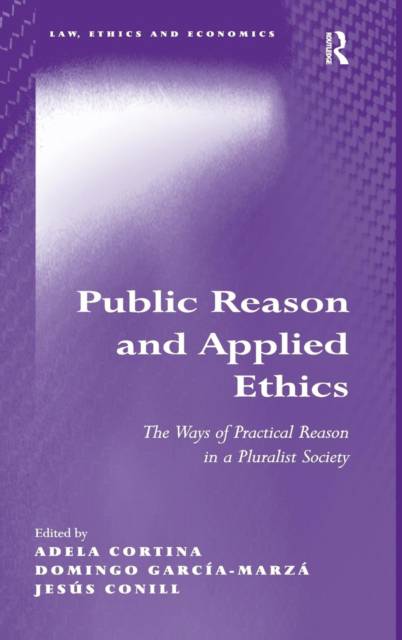
- Afhalen na 1 uur in een winkel met voorraad
- Gratis thuislevering in België vanaf € 30
- Ruim aanbod met 7 miljoen producten
- Afhalen na 1 uur in een winkel met voorraad
- Gratis thuislevering in België vanaf € 30
- Ruim aanbod met 7 miljoen producten
Zoeken
Public Reason and Applied Ethics
The Ways of Practical Reason in a Pluralist Society
Adela Cortina, Domingo García-Marzá
€ 274,95
+ 549 punten
Uitvoering
Omschrijving
Examining the theoretical and empirical status of applied ethics, this volume demonstrates how a pluralistic and democratic society can deal with ethical issues in the light of its moral conscience. The volume first sets the stage for a conception of applied ethics as applications of transnational civil ethics, based both on a discourse theory of knowledge (Apel, Habermas), and on an activities and capabilities approach (Aristotle, Sen). It then examines how applied ethics relates to important theoretical discussions in philosophy such as constructivism, virtue ethics, hermeneutic and deliberative theory. The contributors discuss applied ethics in light of globalization and identify recurring dilemmas as well as the problem of universal norms. They close by considering two aspects of the institutional point of view - republicanism, and contractarianism and constitutional economics.
Specificaties
Betrokkenen
- Auteur(s):
- Uitgeverij:
Inhoud
- Aantal bladzijden:
- 204
- Taal:
- Engels
- Reeks:
Eigenschappen
- Productcode (EAN):
- 9780754672876
- Verschijningsdatum:
- 15/08/2008
- Uitvoering:
- Hardcover
- Formaat:
- Genaaid
- Afmetingen:
- 156 mm x 234 mm
- Gewicht:
- 467 g

Alleen bij Standaard Boekhandel
+ 549 punten op je klantenkaart van Standaard Boekhandel
Beoordelingen
We publiceren alleen reviews die voldoen aan de voorwaarden voor reviews. Bekijk onze voorwaarden voor reviews.











